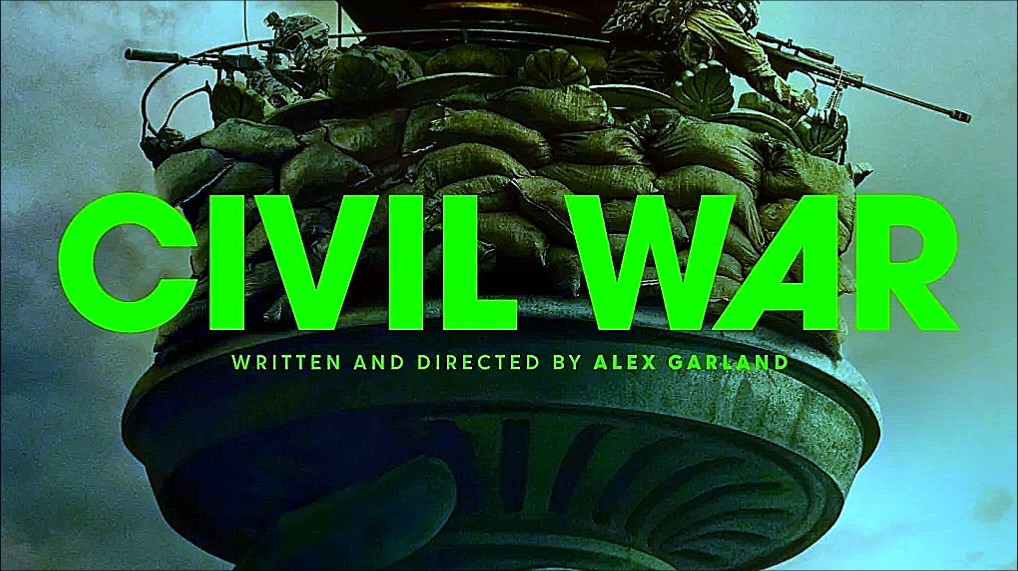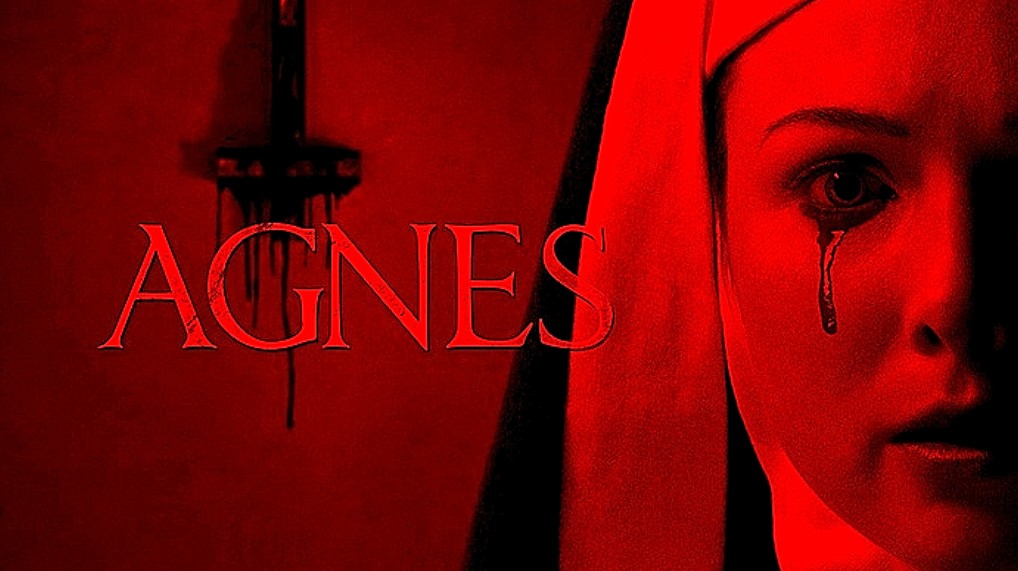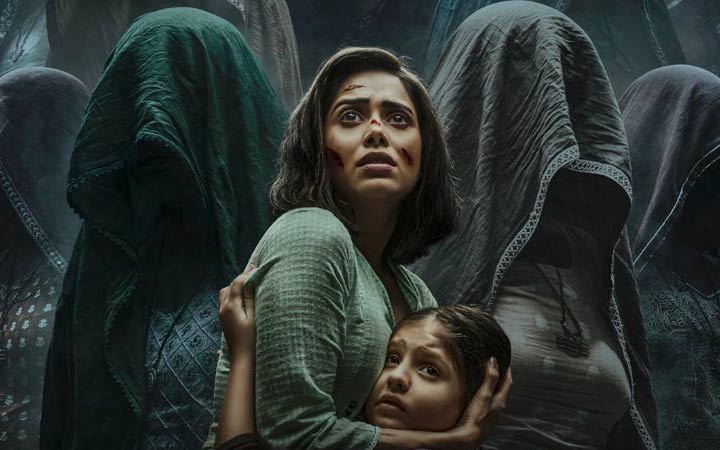Meta Description Suggestion: Read our in-depth review of Alex Garland’s Civil War (2024). Explore its raw depiction of conflict, powerful performances, and unsettling relevance. A thought-provoking thriller that delves into the chaos of a fractured America. Includes full movie details, summary, and official trailer.
Civil War (2024) – Movie Details and Full Review
Introduction
Alex Garland’s Civil War arrives not just as a film, but as a chilling cinematic prophecy. In an era of increasing political polarization, Garland, known for his thought-provoking and often bleak visions (Ex Machina, Annihilation), delivers a raw, uncompromising, and ultimately unsettling look at a fractured America plunged into a modern civil war. This isn’t a film about explaining the origins of the conflict, nor is it a rallying cry for any particular ideology. Instead, Civil War acts as a visceral, embedded reportage, forcing its audience to confront the devastating human cost of societal collapse through the eyes of journalists desperate to document the truth before it’s too late. It’s a film that leaves you shaken, pondering the fragility of peace and the terrifying reality of what could be.
Movie Details
- Title: Civil War
- Release Date: April 12, 2024 (USA)
- Genre(s): Action, Thriller, Drama, War
- Director: Alex Garland
- Writer: Alex Garland
- Main Cast:
- Kirsten Dunst as Lee Miller
- Wagner Moura as Joel
- Cailee Spaeny as Jessie
- Stephen McKinley Henderson as Sammy
- Nick Offerman as The President
- Jesse Plemons as Loyalist Militiaman (cameo)
- Sonoya Mizuno as Anya
- Production Companies: A24, DNA Films
- Distributor: A24
Synopsis (Spoiler-Free)
In a near-future America consumed by civil war, a seasoned photojournalist, Lee Miller (Kirsten Dunst), her journalistic colleague Joel (Wagner Moura), and veteran reporter Sammy (Stephen McKinley Henderson) embark on a perilous cross-country journey to Washington D.C. Their objective: to secure an interview with the autocratic President (Nick Offerman) before the Western Forces, an alliance between California and Texas, reach the capital. Along the way, they pick up a young, aspiring photojournalist, Jessie (Cailee Spaeny), who looks up to Lee. As they navigate war-torn landscapes and encounter various factions – from loyalist soldiers to mysterious militias – they witness the brutality and dehumanization that define a nation tearing itself apart, forcing them to confront their roles and the immense risks they take for their craft.
Movie Review
Civil War is not a film designed for comfort. From its opening moments, it establishes a tone of unrelenting tension and grim realism. Alex Garland’s directorial choices are stark and effective. He avoids getting bogged down in the political specifics of how America fractured, instead focusing on the horrifying effects of that fracture. This deliberate ambiguity, while frustrating for some, is precisely what makes the film so powerful. It transcends partisan lines to illustrate a universal truth: civil conflict is ugly, regardless of who is fighting or why.
The film operates largely as a road movie, with each stop on the journalists’ journey serving as a harrowing vignette. These encounters are often brief, brutal, and emotionally devastating. Garland stages the action with a raw immediacy that is both terrifying and authentic. The firefights are chaotic and sudden, emphasizing the unpredictable nature of war and the razor-thin line between life and death. Greig Fraser’s cinematography (who also shot Dune: Part Two) is exceptional, grounding the fantastical premise in a disturbingly plausible reality. His lens captures both the desolate beauty of a broken country and the visceral horror of its internal strife, often juxtaposing moments of extreme violence with the serene beauty of the American landscape.
The performances are uniformly strong, with Kirsten Dunst delivering one of her most impactful roles as Lee Miller. Her portrayal is one of weary resignation, haunted by the atrocities she’s witnessed over her career. She’s no longer seeking glory, but a desperate attempt to make sense of the madness. Her eyes, often filled with a quiet desperation, convey more than dialogue ever could. Wagner Moura as Joel provides a vital, often adrenaline-fueled counterpoint, driven by the thrill of the chase, while Stephen McKinley Henderson’s Sammy offers a grounding wisdom and a sense of the old guard. Cailee Spaeny’s Jessie undergoes a chilling transformation, slowly becoming desensitized to the horrors around her, reflecting the corrupting influence of constant exposure to violence. A particular highlight is Jesse Plemons’ terrifying cameo as a nameless loyalist militiaman, a scene that is brief but unforgettable in its chilling portrayal of arbitrary brutality and dehumanization.
The sound design is crucial to the film’s immersive quality. The sudden bursts of gunfire, the distant explosions, and the unsettling silence that often follows create an atmosphere of constant dread. Garland often uses slow-motion to emphasize key moments of violence, not to glamorize, but to force the audience to absorb the impact. The film’s message about the importance of journalism, even in the face of unimaginable danger, is subtly woven throughout, highlighting the role of truth-tellers in a world descending into chaos.
Summary
Civil War is a bold, uncompromising, and deeply disturbing film that serves as a potent cautionary tale. It’s not an easy watch, nor is it meant to be. Alex Garland deliberately crafts a non-partisan narrative, choosing to focus on the human cost and the chilling practicalities of a nation at war with itself. While some viewers may desire more exposition on the conflict’s origins, the film’s strength lies in its relentless focus on the immediate, visceral experience of its characters. It’s a technical marvel with stellar performances, particularly from Dunst, and leaves an indelible mark on the psyche. Highly recommended for those seeking a challenging and thought-provoking cinematic experience.
Explained: The Power of Ambiguity and the Journalist’s Gaze
One of the most debated aspects of Civil War is its deliberate ambiguity regarding the political factions and the specific causes of the conflict. Garland intentionally omits details about why the civil war started, who precisely constitutes the “Western Forces” (California and Texas, seemingly ideologically disparate states, are allied), and the specific grievances driving the conflict. This choice is not a narrative oversight; it’s a profound thematic decision.
By refusing to take a side or explain the “politics,” Garland forces the audience to focus on the consequences of division rather than the reasons for it. The film becomes less about “whose fault it is” and more about “what happens when it breaks.” This ambiguity makes the film universally applicable, preventing it from being dismissed as a partisan commentary and instead making it a chilling exploration of societal collapse regardless of the initial catalysts. It highlights the terrifying reality that once violence escalates to a certain point, the original ideologies often become secondary to survival, power, and retribution.
Furthermore, the film’s perspective is strictly that of the journalists. We see what they see, and we experience the war as they do – often fragmented, chaotic, and lacking a clear overarching narrative. This reinforces the idea that in times of extreme conflict, objective truth becomes elusive, and the role of documentation, however incomplete, becomes paramount. The journalists are not heroes in a traditional sense; they are observers, tasked with capturing the raw, unvarnished reality, even when that reality is almost unbearable. Their emotional detachment, born of necessity and trauma, underscores the film’s grim message about the desensitization required to survive such a world.
Official Trailer Link
Now, let’s move on to the next movie review : Dune: Part Two (2024).




